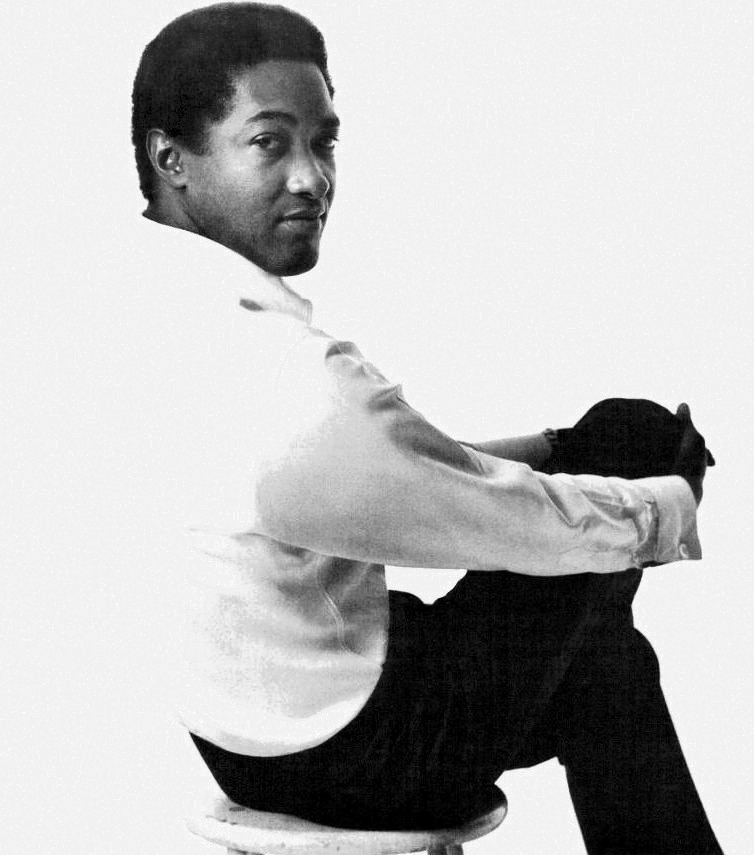|
Only For The Lonely
''Only for the Lonely'' is the second solo studio by American rhythm and blues and gospel singer Mavis Staples. It was released on October 12, 1970, by Volt Records. Critical reception In the ''Billboard'' issue dated October 24, 1970, a review was published saying, "This album is at once dramatic and sensuous, and warm and appealing. Mavis Staples is cast in the same mold that produced recording greats like Aretha Franklin, Nancy Wilson and Etta James, and she can really deliver a song. Included here are "It Makes Me Want to Cry," "How Many Times," "Since I Fell for You" and " Endlessly". '' Cashbox'' published a review of the album in the issue dated October 31, 1970, which said, "Mavis Staples is a brilliant songstress with an incredibly powerful voice. Listening to her perform on an album, one cannot help but feel that she is in fact performing live in your living room. "I Have Learned to Do Without You," "Endlessly," "Since I Fell for You," and "It Makes Me Wanna Cry," are ... [...More Info...] [...Related Items...] OR: [Wikipedia] [Google] [Baidu] |
Mavis Staples
Mavis Staples (born July 10, 1939) is an American rhythm and blues and gospel singer, actress, and civil rights activist. She rose to fame as a member of her family's band The Staple Singers (she is the last surviving member of that band). During her time in the group, she recorded the hit singles "I'll Take You There" and " Let's Do It Again". In 1969, Staples released her self-titled debut solo album. She continued to release solo albums throughout the following decades; and collaborated with artists such as Aretha Franklin, Prince, Arcade Fire, Nona Hendryx, Ry Cooder, and David Byrne. Her eighth studio album ''You Are Not Alone'' (2010), earned critical acclaim, and became her first album as a soloist to reach number one on a '' Billboard'' chart, peaking atop the Top Gospel Albums chart. It also earned Staples her first Grammy Award win. Following this, she released the albums: ''One True Vine'' (2013), '' Livin' on a High Note'' (2016), '' If All I Was Was Black'' (2017), ... [...More Info...] [...Related Items...] OR: [Wikipedia] [Google] [Baidu] |
Clyde Otis
Clyde Lovern Otis (September 11, 1924 – January 8, 2008), was an American songwriter and record producer, best known for his collaboration with singer Brook Benton, and for being one of the first African-American A&R executives at a major label. According to the music licensing organization Broadcast Music Inc., Otis is credited as the writer or co-writer of almost 800 songs. Early career After serving in the Marines during World War II, Otis moved to New York City and inspired by fellow Marine Bobby Troup, best known for " Route 66", began writing songs. Otis' first success was Nat King Cole’s recording of his song "That's All There Is to That", which reached the '' Billboard'' Top 20 in 1956. A&R executive On joining Mercury Records as director of A&R in 1958, Otis began writing and producing material for Brook Benton. This collaboration led to " It's Just a Matter of Time", " Endlessly", "So Many Ways", "Kiddio" and the novelty song, "The Boll Weevil Song". Otis als ... [...More Info...] [...Related Items...] OR: [Wikipedia] [Google] [Baidu] |
Burt Bacharach
Burt Freeman Bacharach ( ; born May 12, 1928) is an American composer, songwriter, record producer and pianist who composed hundreds of pop songs from the late 1950s through the 1980s, many in collaboration with lyricist Hal David. A six-time Grammy Award winner and three-time Academy Award winner, Bacharach's songs have been recorded by more than 1,000 different artists. , he had written 73 US and 52 UK Top 40 hits. He is considered one of the most important composers of 20th-century popular music. His music is characterized by unusual chord progressions, influenced by his background in jazz harmony, and uncommon selections of instruments for small orchestras. Most of Bacharach and David's hits were written specifically for and performed by Dionne Warwick but earlier associations (from 1957 to 1963) saw the composing duo work with Marty Robbins, Perry Como, Gene McDaniels and Jerry Butler. Following the initial success of these collaborations, Bacharach went on to write hits for ... [...More Info...] [...Related Items...] OR: [Wikipedia] [Google] [Baidu] |
A House Is Not A Home (song)
"A House Is Not a Home" is a 1964 ballad written by the team of Burt Bacharach and Hal David for the 1964 film of the same name, starring Shelley Winters and Robert Taylor. The song was recorded by American singer Dionne Warwick at Bell Sound Studios in New York City, and was a modest hit in the United States for the singer, peaking at #71 on the pop singles chart as the B-side of the top 40 single, "You'll Never Get to Heaven (If You Break My Heart)". Another version of the song, by Brook Benton, which was the version that appeared in the film, was released at nearly the same time. It debuted two weeks earlier on the ''Billboard'' Hot 100. Benton's version split airplay with Warwick's, and ultimately peaked at #75. Warwick's version of "A House Is Not a Home" fared better in Canada, where it was a top 40 hit, peaking at #37. The ballad made the R&B top 10 in Cashbox by both Warwick and Benton, with neither artist specified as best seller. Despite its modest initial success, th ... [...More Info...] [...Related Items...] OR: [Wikipedia] [Google] [Baidu] |
Sam Cooke
Samuel Cook (January 22, 1931 – December 11, 1964), known professionally as Sam Cooke, was an American singer and songwriter. Considered to be a pioneer and one of the most influential soul artists of all time, Cooke is commonly referred to as the " King of Soul" for his distinctive vocals, notable contributions to the genre and significance in popular music. Cooke was born in Clarksdale, Mississippi and later relocated to Chicago with his family at a young age, where he began singing as a child and joined the Soul Stirrers as lead singer in the 1950s. Going solo in 1957, Cooke released a string of hit songs, including "You Send Me", " A Change Is Gonna Come", "Cupid", " Wonderful World", " Chain Gang", "Twistin' the Night Away", " Bring It On Home to Me", and "Good Times". During his eight-year career, Cooke released 29 singles that charted in the Top 40 of the ''Billboard'' Pop Singles chart, as well as 20 singles in the Top Ten of ''Billboard'' Black Singles chart. In ... [...More Info...] [...Related Items...] OR: [Wikipedia] [Google] [Baidu] |
You Send Me
"You Send Me" is a song written and originally recorded by American singer Sam Cooke, released as a single in 1957 by Keen Records. Produced by Bumps Blackwell and arranged and conducted by René Hall. The song, Cooke's debut single, was a massive commercial success, becoming a hit on both ''Billboard'' Rhythm & Blues Records chart and the ''Billboard'' Hot 100. It was named as one of the 500 most important rock and roll recordings by the Rock & Roll Hall of Fame. In April 2010, the song ranked in ''Rolling Stone'' magazine's ''The 500 Greatest Songs of All Time''. In addition to the original version of Sam Cooke, "You Send Me" has received numerous covers over the years, the most important being the versions of Teresa Brewer (1957), Aretha Franklin (1968), Ponderosa Twins Plus One (1971) and The Manhattans (1985). Sam Cooke version (1957) Background Cooke wrote "You Send Me" but gave the writing credit to his younger brother L.C. (who used the original family spelling "Cook ... [...More Info...] [...Related Items...] OR: [Wikipedia] [Google] [Baidu] |
Ronnie Wilkins
John David Hurley (April 18, 1941 – August 16, 1986) and Ronald Stephen Wilkins (born October 8, 1941) were American musicians and songwriting partners responsible for writing the hit songs "Love of the Common People" and "Son of a Preacher Man". Hurley also recorded three albums in the 1970s. Origins and early careers John Hurley was born in Pittsburgh, Pennsylvania. As a child, he performed in Pittsburgh barrooms with his uncle, and co-hosted a local radio show. He also sang with the Pittsburgh Opera Company before discovering rock and roll and moving to Nashville. He joined the Tree music publishing company as a songwriter in 1962. Ronnie Wilkins was born in Lumberton, North Carolina. He started writing songs and performing while at high school, and as a teenager appeared on local radio station WAGR where he was heard by a Charlotte talent agent and as a result auditioned successfully for Tree. His first successful record as a songwriter was Joe Dowell's "Poor Littl ... [...More Info...] [...Related Items...] OR: [Wikipedia] [Google] [Baidu] |
John Hurley And Ronnie Wilkins
John David Hurley (April 18, 1941 – August 16, 1986) and Ronald Stephen Wilkins (born October 8, 1941) were American musicians and songwriting partners responsible for writing the hit songs "Love of the Common People" and "Son of a Preacher Man". Hurley also recorded three albums in the 1970s. Origins and early careers John Hurley was born in Pittsburgh, Pennsylvania. As a child, he performed in Pittsburgh barrooms with his uncle, and co-hosted a local radio show. He also sang with the Pittsburgh Opera Company before discovering rock and roll and moving to Nashville. He joined the Tree music publishing company as a songwriter in 1962. Ronnie Wilkins was born in Lumberton, North Carolina. He started writing songs and performing while at high school, and as a teenager appeared on local radio station WAGR where he was heard by a Charlotte talent agent and as a result auditioned successfully for Tree. His first successful record as a songwriter was Joe Dowell's "Poor Littl ... [...More Info...] [...Related Items...] OR: [Wikipedia] [Google] [Baidu] |
Son Of A Preacher Man
"Son of a Preacher Man" is a song written and composed by American songwriters John Hurley and Ronnie Wilkins and recorded by British singer Dusty Springfield in September 1968 for the album ''Dusty in Memphis.'' Springfield's version was produced by Jerry Wexler, Tom Dowd, and Arif Mardin for her first album for the Atlantic Records label. The single, released in late 1968 and credited as "Son-of-a Preacher Man" on UK, US and other releases, became an international hit, reaching no. 9 in the UK Singles Chart, UK singles chart and no. 10 on Billboard (magazine), ''Billboard'''s Billboard Hot 100, Hot 100 in January 1969. The album ''Dusty in Memphis'' was released in Stereophonic sound, stereo, though its singles were remixed and released in Monaural, mono. "Son of a Preacher Man" was Springfield's last Top 30 hit until 1987, when her collaboration with UK synthpop duo the Pet Shop Boys yielded the huge hit "What Have I Done to Deserve This? (song), What Have I Done to Deserve ... [...More Info...] [...Related Items...] OR: [Wikipedia] [Google] [Baidu] |
Otis Redding
Otis Ray Redding Jr. (September 9, 1941 – December 10, 1967) was an American singer and songwriter. He is considered one of the greatest singers in the history of American popular music and a seminal artist in soul music and rhythm and blues. Nicknamed the " King of Soul", Redding's style of singing gained inspiration from the gospel music that preceded the genre. His singing style influenced many other soul artists of the 1960s. Redding was born in Dawson, Georgia, and at age two, moved to Macon. Redding quit school at age 15 to support his family, working with Little Richard's backing band, the Upsetters, and by performing in talent shows at the historic Douglass Theatre in Macon. In 1958, he joined Johnny Jenkins's band, the Pinetoppers, with whom he toured the Southern states as a singer and driver. An unscheduled appearance on a Stax recording session led to a contract and his first hit single, " These Arms of Mine", in 1962. Stax released Redding's debut album, '' Pain ... [...More Info...] [...Related Items...] OR: [Wikipedia] [Google] [Baidu] |
Homer Banks
Homer Banks (August 2, 1941 – April 3, 2003) was an African American songwriter, singer and record producer. Although best known by many for his songwriting for Stax Records in the 1960s and 1970s, some of his own releases from the 1960s are considered classics on the Northern Soul scene. Many of the songs he wrote have become contemporary classics. Life Banks was born in Memphis, Tennessee, United States, and at the age of 16 formed the Soul Consolidators gospel group which toured around the southern states, often performing his own material. After military service, he returned to Memphis in 1964, and started a singing career with the small Genie label where he met Isaac Hayes and David Porter. Soon, Stax founder Estelle Axton hired him to work at the record shop attached to the company's Satellite Studios, where he stayed for three years, also recording for the Minit label. His three consecutive releases "A Lot of Love" (often covered as "Ain't That a Lot of Love") and ... [...More Info...] [...Related Items...] OR: [Wikipedia] [Google] [Baidu] |
Knight Brothers
The Knight Brothers (also billed as The Knight Bros.) were a soul music duo, comprising Richard Dunbar (b. 31 May 1939) and Jimmy Diggs (b. James Leon Diggs, 11 October 1938)(d. February 28, 2023). Both had been singing in local church choirs, when they met while living in Washington D.C. in the early 1950s. The pair then formed a doo-wop group, the Starfires, who recorded for the Decca label in 1958. Forming a duo, they began recording for the Checker label in 1963. Their biggest success was "Temptation 'Bout To Get Me", which was a number 12 R&B and number 70 pop hit in 1965, and was followed by "I'm Never Gonna Live It Down". Temptation ‘Bout To Get Me was subsequently covered by Billy Stewart and The Rascals recorded it for their 1969 album “See”. Subsequent records on Checker and Mercury were less successful, and the duo split up in 1968. Richard Dunbar went on to sing with a revived version of the Orioles Oriole or Orioles may refer to: Animals * Old Wor ... [...More Info...] [...Related Items...] OR: [Wikipedia] [Google] [Baidu] |



